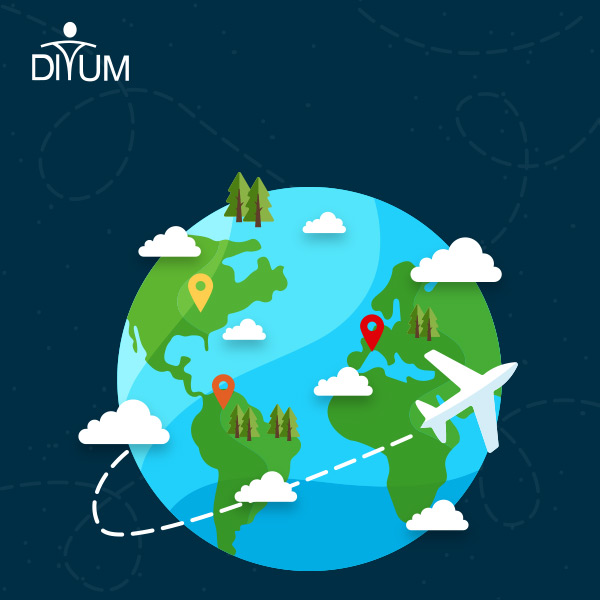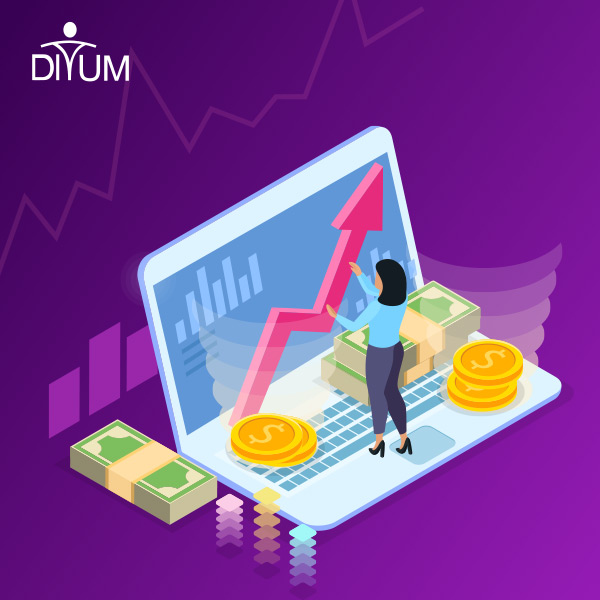If you seek an industry that functions as a massive revenue stream for talented people like composers and artists, then the NFT marketplace is the place. Not only is this an industry that understands the fundamentals of buying and selling, but it also offers rewards and incentives for continued participation.
One of these reward programs is called Crypto Collectibles, which awards users with a blockchain-based digital asset for completing certain tasks or quests in a game. This can be rewarding to gamers and artists alike because it bridges that divide between the two worlds, something that wasn’t possible before blockchain technology came into relevance. Let's deep dive into the topic of NFT and Blockchain, to understand it in a better way.
But before we jump head-first into the world of blockchain, let's break down exactly what an NFT (non-fungible token) is.
What is an NFT?
Simply put, NFT stands for Non-Fungible Token.NFTs are blockchain-based digital tokens that represent a unique physical or digital asset with verifiable ownership.
An NFT marketplace platform can be built on any blockchain, such as Ethereum. The uniqueness of an NFT comes from the fact that every individual token has a unique identity which gives it value and distinguishes it from all other items of the same kind. With this comes the capability to utilize digital signatures as a form of authentication between users to prevent copying and cloning.
What is a web 3.0 marketplace?
A web 3.0 marketplace is a decentralized application (dApp) that connects buyers and sellers through the use of blockchain technology.
But how does it work really?
The user interface is easy to use and requires no technical knowledge. Firstly, a simple registration process needs to be done, then you can search for the items you want to buy or sell.
The platform will provide a unique item ID where the demands are met through smart contracts and payments are made right in your bank account in real-time, instantly.
You receive your cryptocurrency automatically or cash out using Bitcoin or Ether (ETH) via the available payment modes on the platform.
You can also choose to pay with another cryptocurrency such as TRX. The point of using this is that it provides you with more choices at hand while still making transactions cheaper compared to traditional methods due to cheaper transaction fees and faster confirmation times (in comparison with traditional methods).
The platform provides a high level of security for users to protect against fraud and theft.
Our advice:
Use wallets such as Myetherwallet, where you can store your Ethereum and other Cryptocurrencies to transact safely.
Alternatively, you can use a coin base to buy Ethereum (ETH) with USD or exchange your Bitcoin or any other cryptocurrency for ETH.
In addition, users are allowed to rate the items they have purchased on the platform. This is to guarantee that the quality of service rendered is worth it and also enables users to avoid fraudsters who take actions such as refunding payments without delivering items purchased before disappearing into thin air.
How do NFT marketplace and web 3.0 marketplace come together?
The NFT platform is a new form of the marketplace on the web 3.0 where you can sell & buy any form of digital items that can’t be virtually copied. But it is important to note that the following sentence: "A blockchain-based marketplace where users reward each other for uploading and discovering unique work" means that it allows users to gain rewards by contributing their creations or finding other people's creations on the platform which are of high quality and unique.
In other words, it means that the platform allows users to:
1. Get rewards for uploading and discovering good items on the NFT platform.
2. Collaborate with other artists to bring out new art pieces and receive rewards from them.
3. Sell their original work without any third-party interference or additional charges (providing you add a smart contract that determines when the sale is final and if a model is needed).
4. Share your creations with other users on the platform who might purchase them if they find them unique enough to be sold in their stores.
How we created an NFT market for our client:
We built an NFT eCommerce marketplace for physical goods and expanded it to include digital goods such as NFT. Currently, eCommerce users use real money to make purchases, but the marketplace we designed uses private points called spice gold. These coins can be obtained by completing various tasks in numerous games and apps.
The first phase of the marketplace was accomplished and implemented on both the client and test nets. This comprised minting and acquiring NFT, creating wallets for users, moving NFT between users, and validating NFT and user information over the blockchain. The focus was then shifted to the second phase, which consists of two independent modules:
Lending module: The lending module focuses on lending NFT from the lender to the user for a specified length of time. In addition, the user must pay a fee throughout this time.
Interoperable wallet connectivity module: This phase primarily connects our internal blockchain wallet to other third-party wallets in order to transfer assets such as Crypto and NFTs. This also has a separate wallet section where users can transfer their assets from the client side to other wallets and websites if necessary.
Our core project's smart-contract technology module was utilised. This offers open-source code for linking any centralized or decentralized service to the blockchain, safeguarding both senders and receivers.
The wallet offered full functionality, including sending, receiving, and storing Ethereum and all other ERC20 tokens, as well as support for multiple APIs (open-source libraries that enable interaction with smart contracts), making it simple to connect an eCommerce marketplace to it by simply connecting Ethereum accounts.
Connect to our experts to learn more about NFT marketplace creation and other NFT-related queries.

